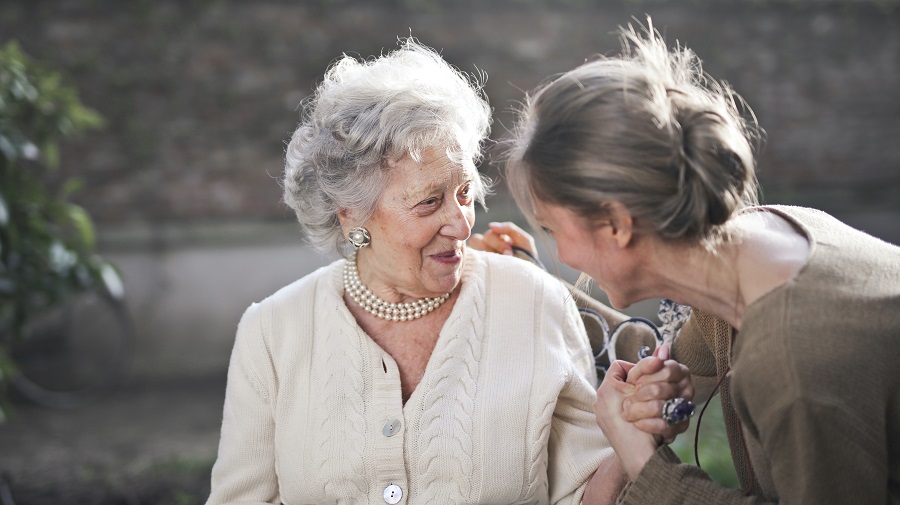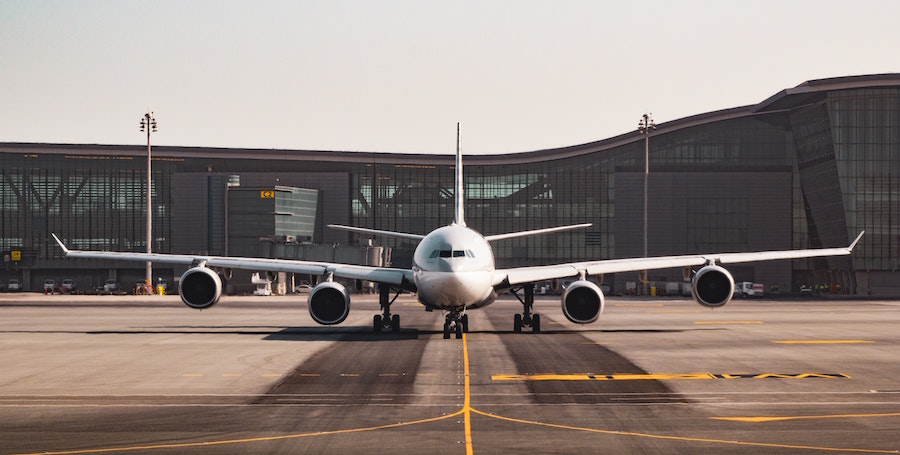Working in Canada during the Time of COVID-19 - Refugee Applicants Caught in Dire Limbo
Canada has an Obligation to Find a Work-around to Eligibility Interview during COVID-19 and Facilitate Refugees’ Right to Work and Study in Canada
Due to the COVID-19 pandemic, working in Canada has become more difficult for many Canadians. Unlike the Canadian Emergency Response Benefit, which has been highlighted in the media for many months, an important issue that has not received much media and policy attention, is the dire situation that many refugee claimants are facing because of their inability to work.
While applications for refugee status made from inside Canada are still being accepted by Immigration, Refugees and Citizenship Canada (IRCC), the processing times for determining a claimant’s eligibility has considerably lengthened in light of the indefinite pause on in-person eligibility interviews..
The first step to obtaining refugee status in Canada is submitting the required documents to IRCC. Once submitted, claimants must wait until they are scheduled for what is called an “eligibility interview.” These interviews are held in person because claimants must sign documents in front of an IRCC agent and provide biometrics. If they pass this interview, their file will then be forwarded to the Refugee Protection Division (RPD) of the Immigration and Refugee Board (IRB) of Canada for a determination on their refugee claim before a Board Member.
While claimants can apply for work or study permits as part of the first stage of this process, they will only be granted these permits after a successful eligibility interview and after completing a required medical exam. Unfortunately, with the outbreak of COVID-19, while medical exams are ongoing, most eligibility interviews have been postponed without a clear timeline given to claimants for when they will resume.
In the meantime, they are only able to work if they have had a valid work permit prior to their refugee application. However, many claimants end up applying for refugee status without having a valid work permit. For refugee claimants who are ready to work and need to work to support themselves and their families, the indefinite delay in receiving a work permit or study permit is undeniably stressful, especially during these difficult times. This also imposes a cost on Canada to provide social assistance to individuals who otherwise may be able to find work and support themselves.
Despite these ongoing challenges for an already vulnerable population, IRCC does not appear to have a creative workaround or solution in place for these asylum seekers who are being negatively impacted by these indefinite delays.
In order to solve this ongoing problem, IRCC must resume eligibility interviews as soon as possible while ensuring the health and safety of their employees and claimants by preparing IRCC offices with social distancing measures and access to virtual technology. IRCC can also devise a two-step approach whereby an individual can be assessed for prima facie eligibility, and if the requirements are met through a virtual interview, then work permit and study permit applications can start being processed. At the second step, once feasible, an in-person interview can also be held and if there are any issues that arise, they can be addressed accordingly at that time.
Refugee claimants are already at a disadvantaged position when it comes to finding work, as many of them have foreign education and work experience, and they are also learning a new language and adjusting to a new environment. They have families, along with hopes and dreams of working and contributing to Canadian society while building a better life in a safe country. They have also been impacted by the COVID-19 pandemic. Not facilitating their right to work and study has a prejudicial impact on their integration process and is also very difficult financially and psychologically.
Canada needs to ensure that it provides all the support necessary to refugees, particularly during a time of crisis, as opposed to creating further barriers and obstacles to their successful establishment in Canada.
Canada Re-opens Parents And Grandparents Immigration Program
Canadians Now Able to Sponsor Parents and Grandparents After COVID-19 Delay
After a delay caused by the COVID-19 pandemic, Immigration, Refugees and Citizenship Canada (IRCC) has begun accepting interest to sponsor forms for the newly re-opened Parents and Grandparents Program (PGP).
IRCC had planned to begin accepting applications earlier this year in order to meet its target of 21,000 accepted parents and grandparents, but was forced to delay it due to the pandemic.
IRCC began accepting "expressions of interest" to the program on October 13 from Canadian citizens and permanent residents looking to sponsor their family members. However, these forms do not count as official applications to the program and are only designed to inform the IRCC of an interest to sponsor parents or grandparents. Applicants have until November 3rd to submit the form.
From the pool of interested potential sponsors, IRCC will then randomly select individuals and send out email invitations to submit an application. Those that have been selected will have up to 60 days to submit their completed sponsorship application.
IRCC is only accepting a maximum of 10,000 applicants to the Parents and Grandparents Program this year, and will accept another 20,000 interested sponsors in 2021 in order to reach its target of 30,000 applicants.
"Now, more than ever, family reunification is an important component of Canada’s immigration system," said Immigration Minister, Marco Mendicino on Twitter. “It plays a key role in attracting, retaining and integrating the best and the brightest from around the world."
IRCC will also introduce a temporary public policy to reduce the income requirement for the 2020 tax year to the minimum necessary income, instead of having it set at the minimum necessary income plus 30 per cent. The goal of this change is to accommodate people who have been financially affected by the COVID-19 pandemic.
Who Is Eligible To Sponsor Their Family Through The PGP?
Anyone who is a registered First Nation, a Canadian citizen, or permanent resident, and is over the age of 18, can apply to sponsor their biological or adopted parents and grandparents, along with step-parents in cases of divorce or separation.
They must also be living in Canada at the time of the application, and be able to financially support the family members they are sponsoring for at least 20 years, starting when they become permanent residents.
In Quebec, financial support is only required for 10 years.
Sponsors must also sign an undertaking with the government vowing to support the basic needs of their sponsored family members. The sponsored person must also make every effort to support themselves.
In some circumstances, a sponsorship application may be denied if the sponsor:
-
Is in jail;
-
Has not re-payed immigration loans, performance bonds, or court-ordered family support payments;
-
Has declared bankruptcy and has not yet been discharged.
Successfully sponsored parents and grandparents become permanent residents of Canada, and eventually, may become Canadian citizens.
Learn more about the eligibility requirements for the PGP on the Government of Canada website.
How to Apply For a Travel Exemption As A Family Member or Compassionate Traveller
Canada Outlines Criteria For Recent Family and Compassionate Travel Exemptions
Following the announcement on October 2 that Canada would be lifting travel restrictions for family members and compassionate travellers, the government has now released the full list of criteria along with the steps that must be taken to apply for an exemption.
Who Is Able to Apply For an Exemption
Under the new rules, certain family members of citizens and permanent residents and those travelling for compassionate reasons can gain entry to Canada, despite the ongoing COVID-19 travel restrictions. However, there is a process that they must follow to apply for an exemption, along with a list of criteria that they must meet.
Family Members
As of October 8, extended family members can now enter Canada, provided they are staying in the country for at least 15 days and meet the eligibility and admissibility requirements. Such individuals do not require a non-optional, non-discretionary reason for travelling to Canada.
Immigration, Refugees and Citizenship Canada (IRCC)’s definition of an “extended family member” is not black and white, and varies depending on how the traveller is related to a Canadian, their spouse, common-law partner, or dating partner.
You may be exempt from travel restrictions if you are directly connected to a Canadian citizen or permanent resident and:
- Have been in a dating relationship with them for at least one year and have physically spent time together in-person during the relationship
- Are their non-dependent minor or adult child
- Are their grandchild (dependent child of a non-dependent adult child)
- Are their sibling, half-sibling, or step-sibling
- Are their grandparent
If you are related to a Canadian’s spouse, common-law partner, or dating partner, you are also considered extended family if you meet the above criteria.
Family members that are exempt will still need written authorization by IRCC along with a signed declaration by the Canadian citizen or permanent resident that verifies their familial relationship. They must also meet existing eligibility and admissibility requirements to enter the country, and require a valid passport and travel document (such as a visa or an electronic travel authorization).
In order to obtain a valid travel exemption, family members must apply to the IRCC by following a six-step process outlined on their website.
Compassionate Travelers
You can also travel to Canada to visit your loved ones and be exempt from travel restrictions and be eligible for a limited release from the otherwise mandatory 14-day self-quarantine period if you are travelling to Canada for compassionate reasons, such as:
- To say goodbye to a loved one who is dying and to be present during their final moments of life
- To provide support or care to someone who is critically ill
- To offer medical support
- To attend a funeral or celebration of life
In order to receive an exemption for compassionate reasons, advance approval for both the travel exemption and the limited release from quarantine is required.
You may apply for an exemption by filling out an application form and providing a Letter of Required Support or proof of death, as well as any necessary Site Visit Authorizations. A Site Visit Authorization is the authorization from the site that you would like to visit, such as a hospital.
If you are travelling to attend a funeral, Canada will accept the following documents as evidence of your intentions:
- A statement of death
- A medical certificate of death
- A burial permit
- A death certificate
Permission from the site you will be visiting may also be required if you plan to visit a hospital or another facility where you may come in contact with vulnerable people.
Besides meeting the eligibility requirements and presenting the required documents and approvals, a 14-day quarantine plan must also be presented and followed. If you are quarantining with a vulnerable person, they must consent to this. In some cases, additional requirements may also be necessary.
Canada Allows International Students And Family Members of Canadians to Enter Canada
Canada Announces Further COVID-19 Travel Exemptions for Foreigners Looking to Enter Canada
Canada is continuing to ease up on travel restrictions during the COVID-19 pandemic. This time, Canada is allowing international students and family members of Canadians to enter Canada.
Ministers responsible for immigration, health, and public safety announced these changes earlier this month at a press conference.
Family Members
During the press conference, Immigration Minister Marco Mendicino stated that beginning on October 8, certain extended and immediate family members of Canadian citizens and permanent residents will be allowed to travel to Canada, with certain restrictions.
Family members who qualify for a travel exemption include:
- Romantic partners that are in exclusive long-term relationships with a Canadian citizen or permanent resident
- Dependent children
- Adult children
- Siblings
- Grandparents
A press release from Immigration, Refugees and Citizenship Canada (IRCC) added to the announcement, explaining that there would be a strict process in place for family members looking to enter Canada. This process involves applying for and obtaining government authorization before traveling to Canada.
International Students
As of October 20, any international students that are currently enrolled at a Canadian designated learning institution (DLI) will also be able to enter Canada. The main stipulations are that international students must self-isolate for 14 days upon arrival, and the DLI must have a COVID-19 readiness plan that has been approved by the province or territory it is located in.
The DLI can include universities, colleges, and other educational institutions that the government has approved to allow international students to study.
Until October 20th, international students will only be allowed to travel to Canada if their program requires in-class participation. This can include labs and/or workshops.
Prior to this exemption, COVID-19 travel restrictions in place since March dictated that students would only be able to enter Canada if their study permits had been approved prior to March 18.
Compassionate Entry
Foreign nationals can now also apply to enter Canada for compassionate reasons, such as travelling to attend a funeral.
While these travel exemptions are a step in the right direction, COVID-19 travel protocols are still in place and must be followed.
As with any other incoming travelers, individuals newly exempted from travel restrictions must self-quarantine for 14 days after they arrive in Canada and provide evidence of a valid quarantine plan.
Google Sees a Surge of "Move To Canada Searches" Following U.S. Presidential Debate
More and More Americans Express Desire to Move to Canada Due to Upcoming Election and COVID-19 Pandemic
With the U.S. presidential election only weeks away, more and more American's are looking to find a new country to call home, namely, Canada.
During the presidential debate between the current president, Donald Trump, and Democratic nominee Joe Biden on September 29, data from Google showed that the search term "move to Canada" experienced a significant increase in traffic.
Immediately following the debate (which was described by many as "chaotic"), traffic dipped to normal levels, but by the next morning, as clips from the debate when viral across the internet, searches picked back up again.
The data from Google does not reveal the exact number of searches that took place, but clearly demonstrates an increase compared to before the debate took place.
The states that were most interested in immigrating to Canada included Oregon, Vermont, Colorado, Washington, and Minnesota.
Searches for "move to New Zealand" also increased during the debate, but did not experience the same amount of traffic as "move to Canada."
Comments on social media from users expressing interest in immigrating to Canada also increased, with one Twitter user expressing that the debate "is a 90-minute commercial for Canada,” and receiving thousands of likes.
This should not come as a surprise, as this is not the first time Americans have expressed interest in moving to Canada during an election. During the 2016 election when Trump was elected, many Americans, including celebrities, indicated they would move to Canada if Trump was elected. It is not known how many actually followed through.
Global News also reported that immigration lawyers in Canada reported a large number of Americans inquiring about immigrating to Canada during the height of the COVID-19 pandemic.
Unfortunately, Americans looking to say goodbye to the United States will have to wait, as U.S. residents are currently barred from crossing the border into Canada due to travel restrictions put in place to help combat the COVID-19 pandemic.
However, if Canada's recent Throne Speech is any indication, Americans wishing to start their new lives in Canada will be welcome with open arms once the COVID-19 travel restrictions are lifted.
"Canada has an opportunity as we recover to become the world’s top destination for talent, capital, and jobs,” Governor General Julie Payette told Parliament.
“When people choose Canada, help build Canada, and make sacrifices in support of Canada, we should make it easier for them to formally become Canadian.”





